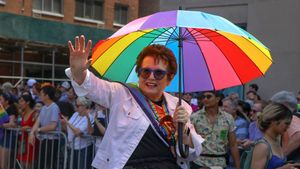1974 was a different time. Homophobic singer and activist Anita Bryant was enjoying the limelight, and the American Psychiatric Association (APA) still considered homosexuality to be a mental disorder. But on April 8 of that year, the APA ratified a change of the definition, thanks to the efforts of a still-nascent National Gay & Lesbian Task Force, which marked this off as one of their agenda's first action items.
The consequences of this change were empowering and far-reaching. Not only was it more difficult for doctors nationwide to classify sexual orientation as either "abnormal" according to their own personal biases, it also removed an authoritative voice that homophobic platforms had used for decades as a basis for their policies.
Sadly, the alteration in definition did little to stem attempts to change and convert LGBT people; conversion therapies have continued to this day, due in part to a proviso in the ASA's DSM (Diagnostic and Statistical Manual of Mental Disorders) made as a compromise that same year. The phrase Sexual Orientation Disturbance (SOD) was coined to identify homosexuality as an illness, provided that the individual concerned felt that his or her same-sex attractions were troubling or undesirable.
It would take the APA approximately 15 more years to strike these concepts permanently from the record, but since then, they have come a long way. The APA's current definition of homosexuality, in a memorandum published in late 2013, reads as follows:
"It is the American Psychiatric Association's position that same-sex attraction, whether expressed in action, fantasy, or identity, implies no impairment per se in judgment, stability, reliability, or general social or vocational capabilities."
Regarding the much-contested matter of conversion therapies, the statement continues:
"The American Psychiatric Association does not believe that same-sex orientation should or needs to be changed, and efforts to do so represent a significant risk of harm by subjecting individuals to forms of treatment which have not been scientifically validated and by undermining self-esteem when sexual orientation fails to change."
This resounding shift has had real world implications on the governmental level, as recently seen with Congress's efforts to ban conversion therapies in all its forms.
It only took 42 years.






































































